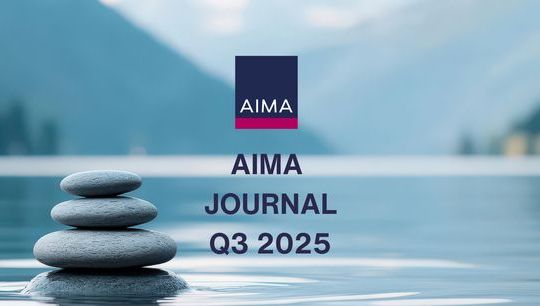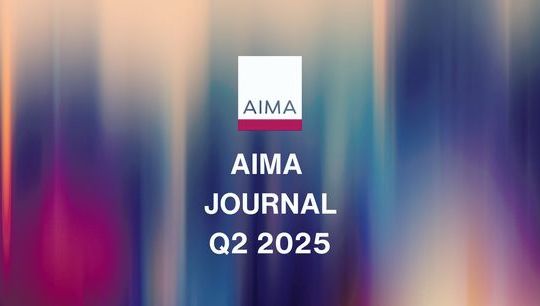Hong Kong SFC amendments to fund manager code of conduct
By Orville Thomas, APAC Head of Prime Services Consulting, Credit Suisse
Published: 21 January 2018
On Thursday 16 November 2017, the Hong Kong Securities and Futures Commission (SFC) released its Consultation Conclusions on Proposals to Enhance Asset Management Regulation and Point-of-Sale Transparency and Further Consultation on Proposed Disclosure Requirements Applicable to Discretionary Accounts. Of significance to Hong Kong fund managers are the forthcoming changes to the Fund Manager Code of Conduct (FMCC). (Full text of the 16 November SFC Announcement)
The SFC noted that the enhancements to the FMCC are intended to reflect the latest international benchmarks concerning the conduct of fund managers issued by the International Organization of Securities Commissions (IOSCO) and the Financial Stability Board (FSB), and other international expectations which are intended to ensure that Hong Kong has a robust regulatory regime that is in line with international regulatory developments. (Full text of the SFC Consultation Conclusions)
The changes to the FMCC will be applicable to those managers that are regarded as having responsibility for the overall operation of a fund. Based on comments received during the consultation period, the SFC has agreed to remove any reference to the concept of a manager having “de facto control” of a fund, bringing the FMCC more closely in line with the cited IOSCO principles. The SFC also noted that although a fund may have a “governing body” such a board of directors, and the manager may thus not formally be responsible for day-to-day decision making at the fund, said manager may still, in substance, be responsible for the overall operation of the fund, and will therefore be subject to the enhanced FMCC. The SFC has also clarified that where representatives of a fund manager or its subsidiaries constitute the majority of the board of directors of a fund, then the manager may be considered to be responsible for the overall operation of the fund.
We would ask you to note the following enhancements to the FMCC in particular:
Securities Lending & Repos
- Managers should have a collateral valuation and management policy in place and set minimum valuation and margin requirements.
- Managers should set a policy which outlines acceptable collateral and the methodology used to calculate haircuts.
- Managers should have in place a cash collateral reinvestment policy to ensure sufficient liquidity, with transparent pricing and low risk, in order to meet reasonably foreseeable recalls of cash collateral.
- Managers should disclose a summary of the securities lending, repo and reverse repo transactions policy to fund investors, but need not make such disclosure in the fund’s offering documents.
Custody
- Managers are required to exercise due skill, care and diligence in the selection, arranging for the appointment, and ongoing monitoring of a fund’s custodian, irrespective of the fact that the manager does not formally appoint the custodian.
- Managers should ensure that a formal custody agreement is entered into with the custodian.
- Managers should ensure that the custody arrangements and any material risks associated are disclosed to fund investors.
Liquidity Risk Management
- Managers should establish, implement and maintain appropriate and effective liquidity management policies and procedures to monitor the liquidity of the fund, taking into account the investment strategy, liquidity profile, underlying assets and obligations, and redemption policy of the fund.
- Managers should regularly conduct liquidity assessments and stress tests.
- Managers should disclose liquidity risks, management policies and any tools or exceptional measures that could affect redemption rights in the fund’s offering documents, or otherwise make such information freely available to fund investors.
- A manager will not be deemed to be responsible for the overall operation of a fund simply by virtue of its responsibility in managing liquidity risk.
Disclosure of Leverage
Managers must disclose to investors (i) the expected maximum level of leverage it may employ on behalf of the fund, and (ii) the basis of calculation of leverage.
The SFC does not prescribe a methodology for calculating leverage, but states that managers should ensure that the disclosure is arrived at based on a reasonable and prudent calculation methodology.
The amendments to the FMCC will become effective on 17 November 2018 which represents 12 months from the date of official publication of the revised FMCC.
Singapore MAS issues Liquidity Risk Management Consultation Paper (Full text of the MAS Consultation Paper)
On Thursday 26 October, the Monetary Authority of Singapore (MAS) issued Consultation Paper P019-2017 entitled Liquidity Risk Management (LRM) Framework for Fund Management Companies (FMC). The consultation paper sets forth proposed guidelines designed to create a framework of sound practices in liquidity risk management of collective investment schemes, to address the risks to investors from potential liquidity mismatches between the collective investment scheme’s portfolio liquidity and redemption terms. Similar to the corresponding enhancements to the Hong Kong FMCC, the proposed guidelines take into account the international recommendations promulgated by the FSB and IOSCO. The MAS proposes to apply these guidelines to licensed FMCs and registered FMCs which are responsible for the portfolio management of open-ended collective investment schemes.
The guidelines cover 4 key areas:
Governance
The board of directors and senior management of the FMC should ensure that the FMC has a liquidity risk management function that is subject to effective oversight.
There should be clear accountability in an FMC for implementing the LRM framework, and monitoring and managing the liquidity risk.
Initial design of product
- FMCs should ensure that their subscription and redemption terms are commensurate with the fund’s investment strategy and liquidity profile.
- FMC’s should understand investors’ historical and expected redemption patterns and include these in the liquidity assessment of the fund.
- FMCs should consider the suitability of any liquidity management tools, and ensure that they are used only where fair treatment to investors is not compromised.
- Offering documentation should contain clear disclosure of any liquidity management tools and how these may impact investor redemption rights.
Ongoing liquidity risk management
- FMCs should monitor trends in the fund’s investor profile and concentration and redemption patterns, and regularly assess the liquidity profile of the fund’s assets and liabilities.
- FMCs should establish appropriate internal thresholds for the fund’s liquidity which are proportionate to the redemption obligations and liabilities.
- Any decision to suspend redemptions must be reviewed and approved by the senior management and/or board of directors of the FMC, and be notified to the MAS immediately.
Stress testing
- FMCs should regularly conduct stress testing, and review and revise assumptions underlying the stress scenarios.
- If an FMC elects not to conduct stress testing, it should document its rationale, and such decision should be reviewed and approved by the senior management and/or board of directors of the FMC.
The MAS intends to issue the final guidelines in Q1 2018, and expects to provide a transitional three month period for FMCs to adopt and implement the guidelines as appropriate.
In the case of both the HK FMCC and the Singapore LRM Framework, these changes largely represent a codification of existing practice. Nonetheless, managers should be sure to fully apprise themselves of the applicable requirements in their entirety, and determine what corresponding changes may be necessary to their fund documentation and internal policies and procedures.
Please do not hesitate to reach out to a member of the Prime Services Consulting Group or your Credit Suisse representative should you have any immediate questions or concerns.
To contact the author:
Orville Thomas, APAC Head of Prime Services Consulting, Credit Suisse: [email protected]







